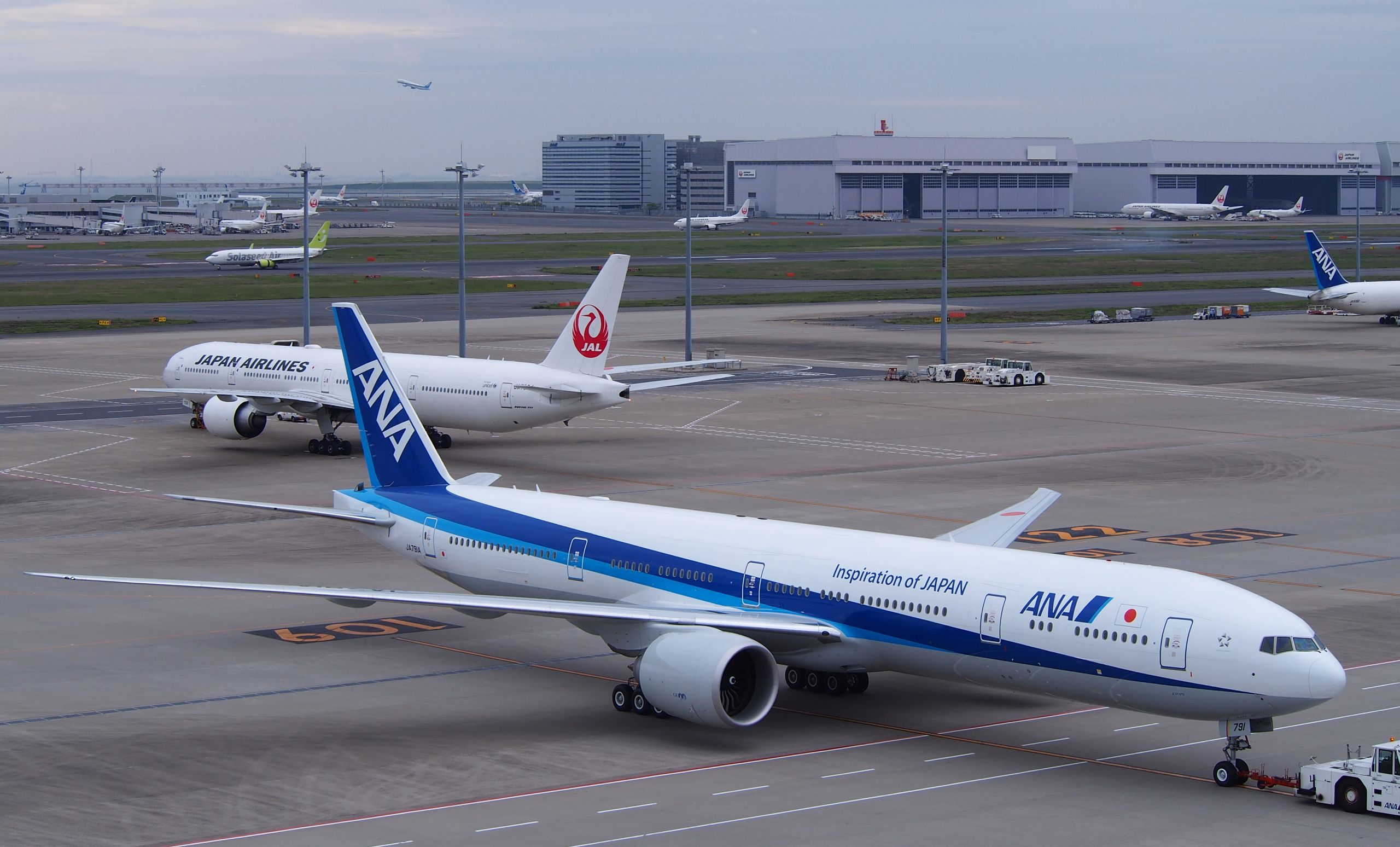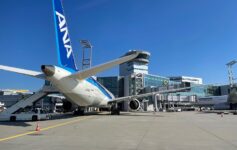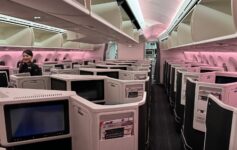
A key advisor to the Japanese Prime Minister has suggested that All Nippon Airways (ANA) and Japan Airlines (JAL) should merge. Make no mistake: this would be horrible for Japanese consumers and indeed consumers around the world.
Influential Government Advisor Says ANA + JAL Should Merge
Heizo Takenaka, an economist and advisor on Prime Minister Yoshihide Suga’s Growth Strategy Council, told Bloomberg that Japan will need to inject capital into both airlines and that the two carriers should “become one.”
Here is a snippet of an English-language article on the Japan Airlines-ANA merger suggestion coming from an adviser to the Japanese PM. Now go subscribe to a Bloomberg @business… Terminal 🤑🤑🤑 https://t.co/hloJhnhCq4pic.twitter.com/7KMW3k9ZDb
— G-DLEE AVIATION 2020 (@JournoDannyAero) November 24, 2020
Shares of both ANA and JAL surged on news of Takenaka’s statement.
View from the Wing reasons that keeping airlines afloat with government funds and competing with each other is counterproductive.
The need for subsidies implies the need for consolidation, otherwise airlines are just burning through the subsidies competing for limited passenger business at a loss.
He’s right…but I also think that analysis is short-sighted.
Airline Mergers Are Bad For Consumers. Always.
We tend to let our guard down during period of rapid change, like the pandemic era we currently find ourselves in. We must not do that.
Think what an ANA – JAL merger could eventually mean for consumers. Higher prices. Reduced flight schedules and onboard service. A less valuable loyalty program. Most importantly, ANA and JAL have spurred each other to be great. Without that competitive pressure, innovation would likely stagnate. Pricing pressure may still exist from budget airlines, but that would make the merged carrier much more likely to match service levels on budget airlines.
Sometimes mergers are necessary for survival. Were they necessary in the USA? I tend to think not, at least not all of them. And why should I have a say in this as a private citizen? Because my tax dollars were used to bail airlines out after 9/11 and again during the current pandemic.
Japanese taxpayers should push back against a merger now. This is a horrible time for aviation around the world and Japan is certainly not exempt. But with a vaccine coming shortly and a better understanding overall of COVID-19, there is no reason to think that the current environment will become a permanent normal.
CONCLUSION
Japan must not be short-sighted in its push to merge JAL and ANA. The danger is not on a short-term basis, but in 2-3 years when demand returns to 2019 levels, but Japanese consumers find themselves suddenly with less choice, less service, less perks, and higher prices on a carrier they bailed out. Both JAL and ANA were profitable before the pandemic. I see no reason to think they cannot emerge from the pandemic and achieve profitability once again.
image: Sho233531 / Wikimedia Commons




With this coming on the heels of a potential KE/OZ merger I think it’s important to differentiate the two. OZ was in rough financial shape before the pandemic. Whether or not their business model was sustainable was highly debatable. Hence, as a merger for them may have been coming anyway it seems reasonable for it to come now. JAL and ANA are a completely different scenario. Both were doing well before the pandemic. They’re not floundering now because of a broken business model or poor choices, but because of a pandemic entirely outside their control. There was room, or at least so it appears to outsiders, for two major international carriers in Japan. With the hope of a vaccine in the near future I agree that it makes little sense to merge two airlines that were doing well before the pandemic in an environment that seemed able to support them.
I agree that the Korean Air – Asiana situation is quite distinguishable.
Why are govt. Giving subsidies? Let corporations fail. Give them money after they fail
USA has chapter 11. Govt. Can provide money in cheaper 11. New investors come in, take over the corporations and repay the govt. You can have aws that airlines have to honor all tickets sold.
Subsidies prevent routes from being rationalized.
They shouldn’t merge but the Japanese government should work on a plan to merge HND and NRT into one airport (or provide a 30 minute high speed rail link). With both airlines at the two airports it makes connecting flights for onward travel harder to get. Korea will provide better connections for onward travel to Asia especially with just one airline.
Are there plans in Korea to consolidate traffic to Gimpo or Incheon?
Apples and oranges. How many passenger flights from the US fly to Gimpo? Zero. The Tokyo airport system is a hodgepodge of domestic, short haul, and long haul flights. That’s just not the case in Seoul.
Well you can easily get there indirectly via rail, or direct via bus, but the other problem is needing to go through security or customs and immigration again. The need is not high enough for a dedicated post security train solution. I regularly see options for award travel that requires changing airports, so I don’t see how your solution solves any problem. If all that is available is an itinerary that requires changing airports, then I make sure there’s enough time to at least go into Tokyo and fill up on sushi and ramen.
Your arguments are well made. Matthew 1, Gary 0 on this one.
As an antitrust attorney, the current situation means a lot of business, but I still think you are right about how the competitive implications of airline consolidation have played out. The transatlantic and transpacific joint ventures have essentially removed what little competition there was in these markets. The efforts by newcomers like Norwegian and Hainan have proved futile. Domestically, some of the smaller players have forced the majors to at least compete on pricing but the market has shown differentiation on service does not pay off. Living in Las Vegas, the time savings alone mean most of my business goes to Southwest, Spirit or Jet Blue over the majors’ hub and spoke model. If I lived in a hub, I would be rewarded with time savings at a much higher cost. As much as I love mileage earning and redemption across airlines, the consumer has been getting shafted for years.
JL and NH shouldn’t merge the same way that UA and AA should not merge. A side note, NH’s livery is very nice and has stood the test of time. I like it better than JAL.
They would still have competition from other global airlines. As much as folks like to complain about the current state of airlines in America (which are the result of a lot of consolidation in the last 15 years), the truth is that (pre COVID) fares have never been lower and air travel has never been more accessible to the masses.
If one buys ticket to South East Asia, e.g. SGN, BKK,… with UA, guarantee he will have to connect in Narita, then fly with ANA to final destination. If the merger is approved, what will happen to the JV between United and ANA? What is United’s solution? Star Alliance would lose two Asian members (Asiana and ANA) to SkyTeam and oneworld, respectively.